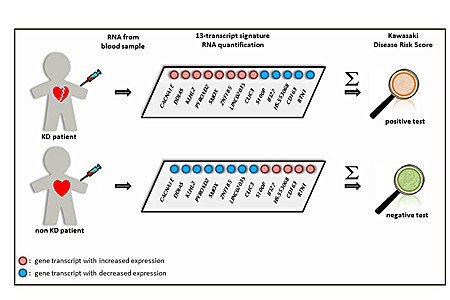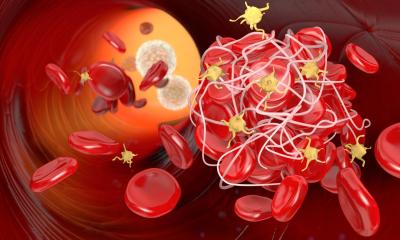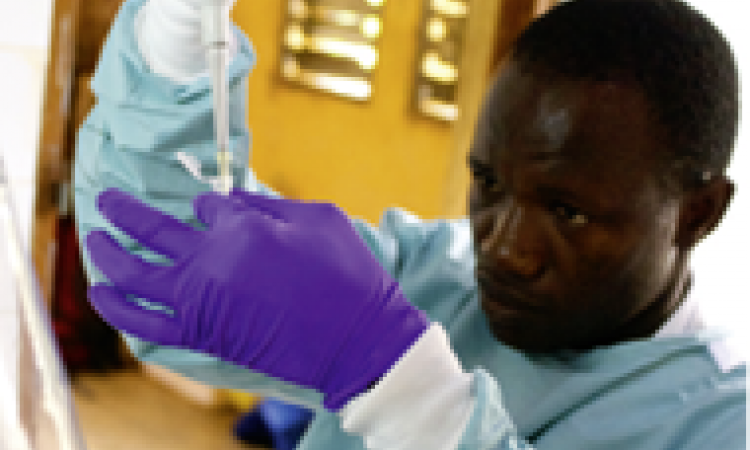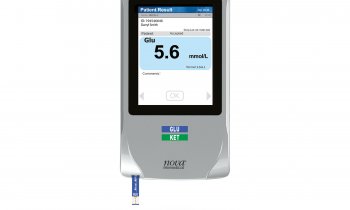
Credit: UC San Diego Health
News • Mysterious illness
Potential diagnostic test for Kawasaki disease
For the first time, researchers at University of California San Diego School of Medicine and Imperial College London, with international collaborators, have determined that Kawasaki disease (KD) can be accurately diagnosed on the basis of the pattern of host gene expression in whole blood. The finding could lead to a diagnostic blood test to distinguish KD from other infectious and inflammatory conditions.
Kawasaki disease is the most common acquired heart disease in children. Untreated, roughly one-quarter of children with KD develop coronary artery aneurysms — balloon-like bulges of heart vessels — that may ultimately result in heart attacks, congestive heart failure or sudden death. “As there is no diagnostic test for Kawasaki disease, late diagnosis often results in delayed or missed treatment and an increased risk of coronary artery aneurysms,” said Jane C. Burns, MD, pediatrician at Rady Children’s Hospital-San Diego and director of the Kawasaki Disease Research Center at UC San Diego School of Medicine. “We sought to identify a whole blood gene expression signature that distinguishes children with KD in the first week of illness.”
Researchers used a case-control approach, including children recruited in hospitals in the United Kingdom, Spain, Netherlands and U.S., with KD or similar illnesses. The researchers looked for tell-tale transcription in blood samples. Transcription is the first step in gene expression, in which information from a gene is used to construct a functional product, such as a protein.

Credit: UC San Diego Health and Imperial College
Transforming diagnosis and treatment
“A 13-transcript blood gene expression signature distinguished KD from the range of infectious and inflammatory conditions with which it is often clinically confused,” said Burns. “A test incorporating the 13-transcripts might enable earlier diagnosis and treatment of KD, preventing cardiac complications and reducing inappropriate treatment in those with other diseases. Our findings represent a step toward better diagnosis based on molecular signatures rather than clinical criteria.” Burns said there is currently no point-of-service test for KD. Engineers will have to devise a blood testing method that can be adapted to the emergency department or hospital lab setting to help bring these research findings into practice.
“We are already in discussions with a number of biotechnology companies that might help us turn our gene signature into a test,” said Michael Levin, Professor of Paediatrics & International Child Health at Imperial College. “An accurate test for KD could prevent many children worldwide from being diagnosed too late to prevent coronary artery damage. If we can develop a test based on our gene signature, this could transform diagnosis and enable early treatment of children affected by the disease.”
Prevalence rates of KD are increasing among children in Asia. Japan has the highest incidence rate, with more than 16,000 new cases per year. One in every 60 boys and one in every 75 girls in Japan will develop KD during childhood. Incidence rates in the U.S. are lower —19 to 25 cases per 100,000 children under age 5 — but it is rising, at least in San Diego County. Predictive models estimate that by 2030, 1 in every 1,600 American adults will have been affected by the disease.
Source: University of California San Diego Health
08.08.2018











